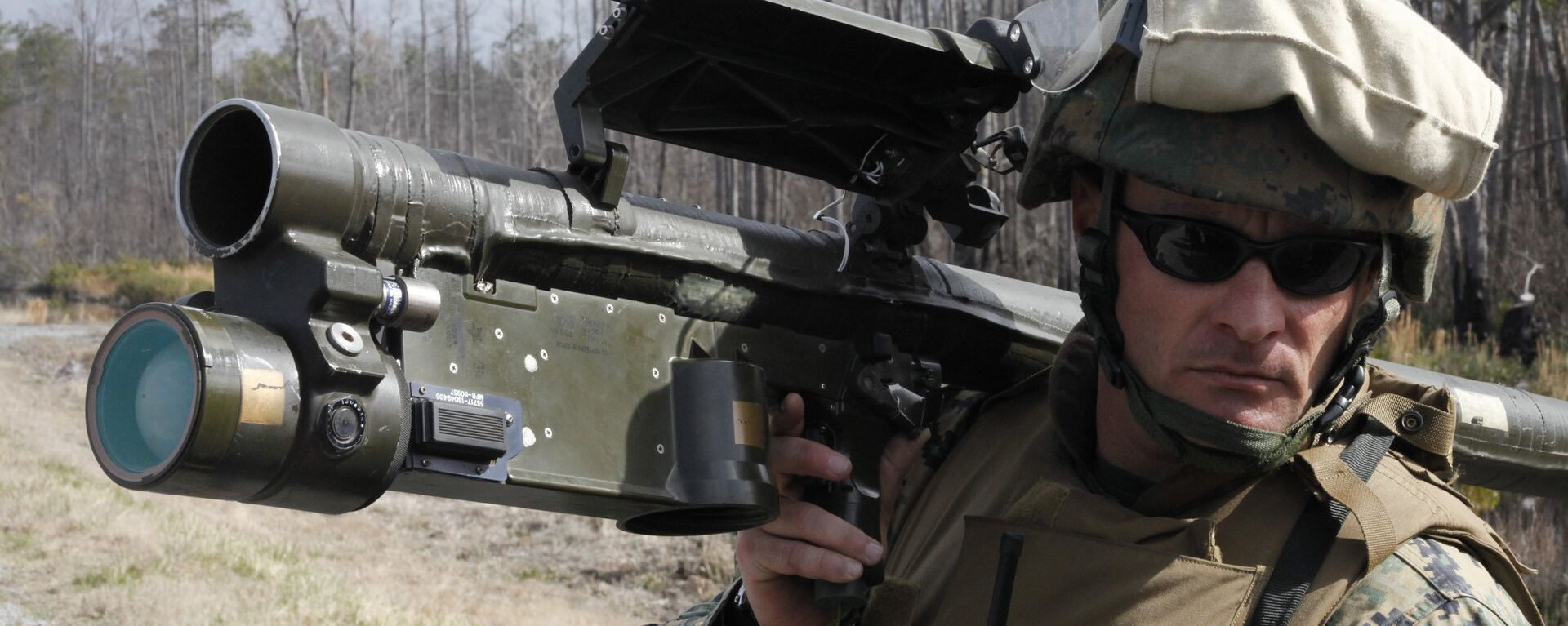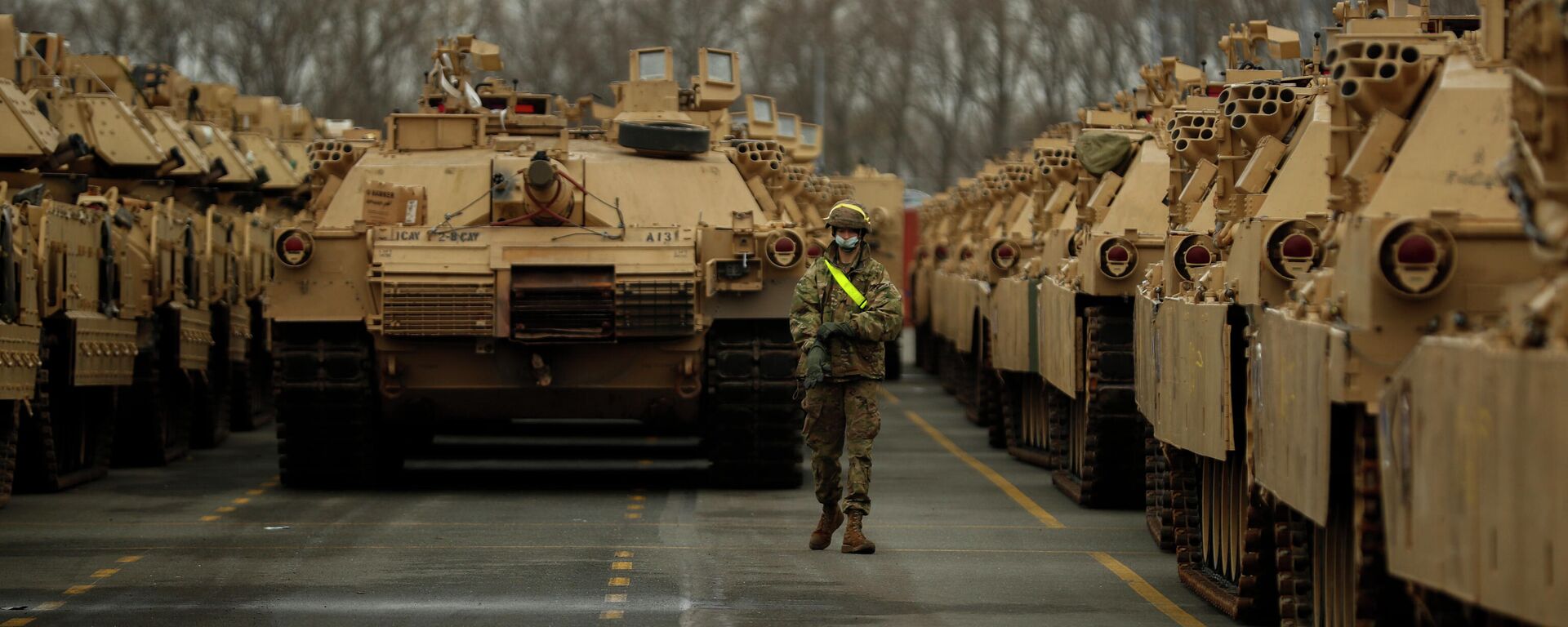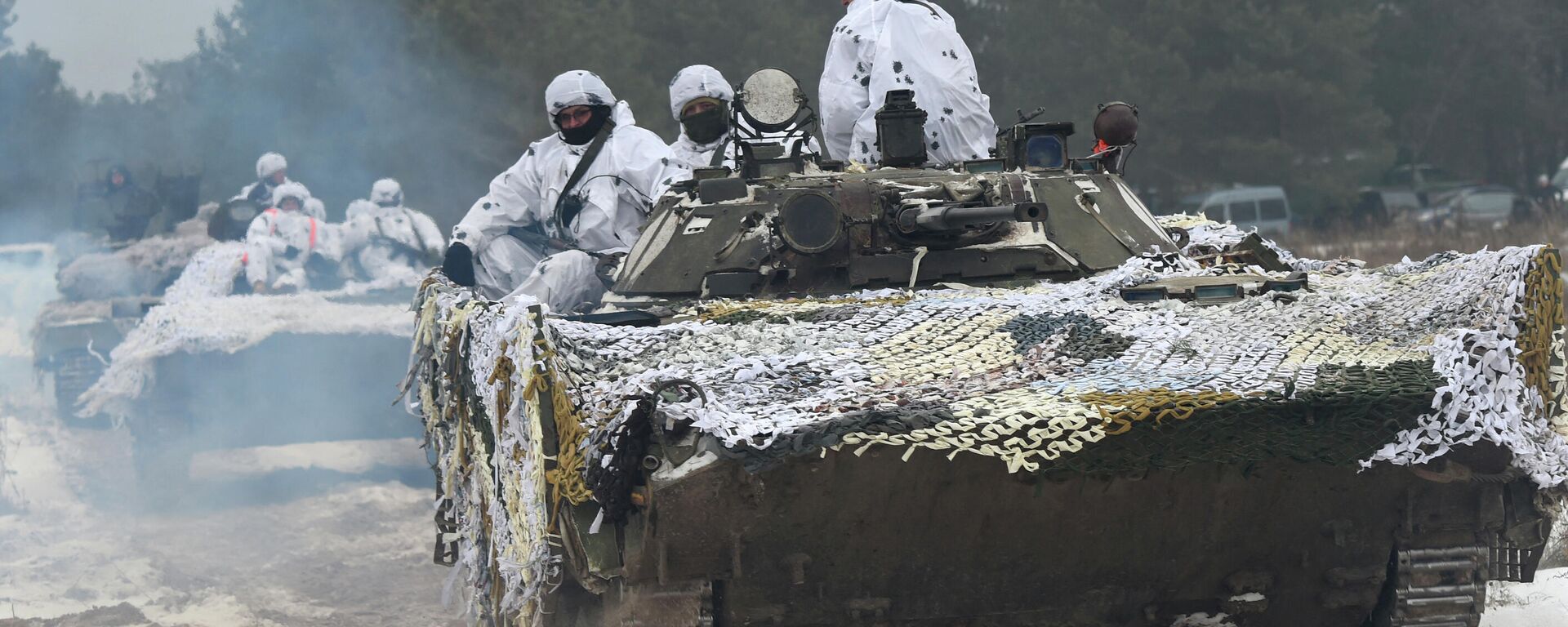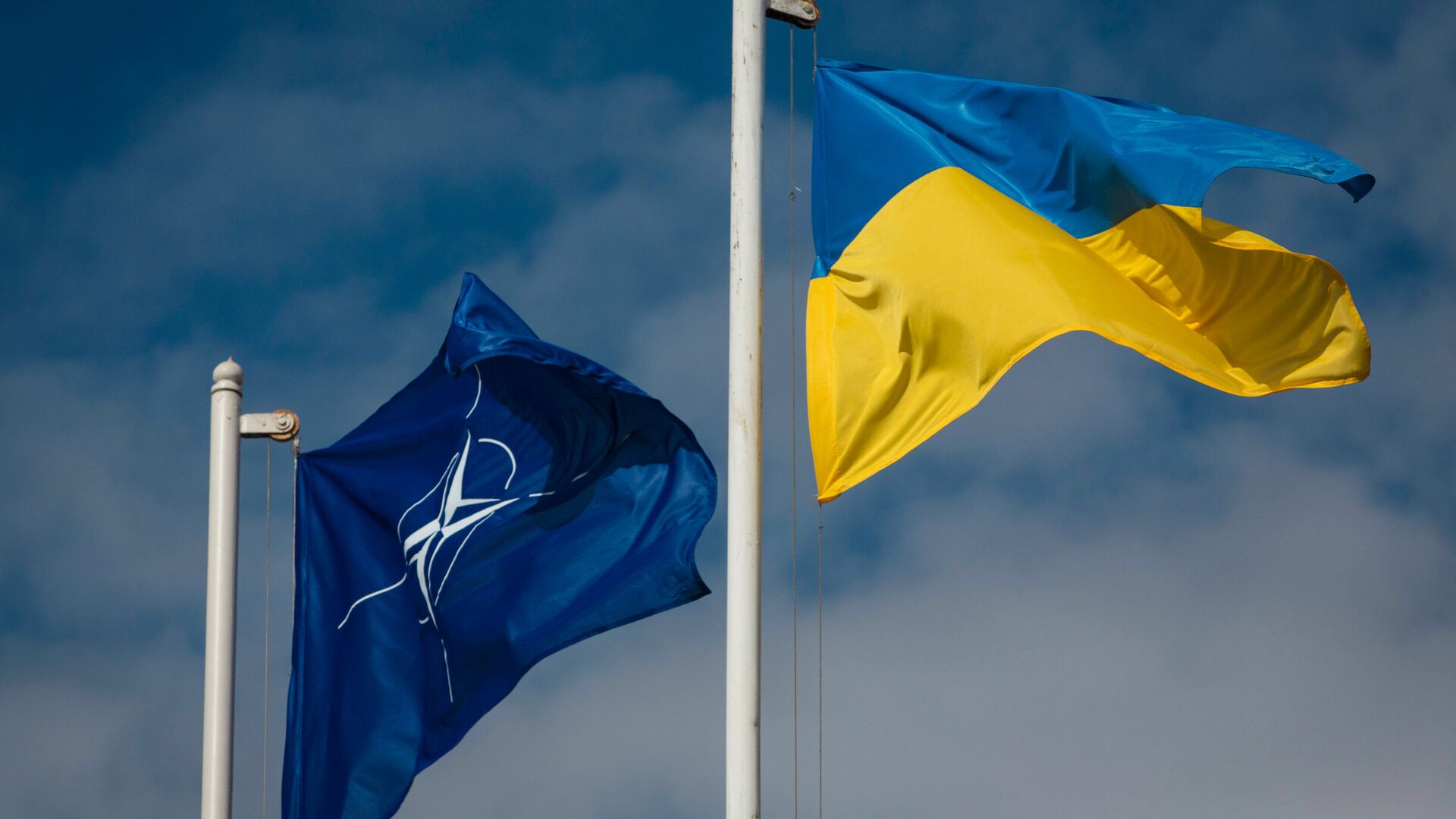https://sputnikglobe.com/20220118/russia-us-security-talks-is-ukraine-vital-for-nato-1092339352.html
Russia-US Security Talks: Is Ukraine Vital for NATO?
Russia-US Security Talks: Is Ukraine Vital for NATO?
Sputnik International
Russia completed the first round of negotiations with the US, NATO and OSCE over its security proposals last week; lots of issues have yet to be bridged, including Ukraine's potential NATO membership.
2022-01-18T12:00+0000
2022-01-18T12:00+0000
2022-01-18T12:00+0000
russia-nato row on european security
osce
world
europe
us
russia
opinion
ukraine
antony blinken
nato expansion
https://cdn1.img.sputnikglobe.com/img/103807/10/1038071068_0:160:3073:1888_1920x0_80_0_0_178af697b66e6dc29a91fc1f29bfde73.jpg
A series of Russian meetings with the US, NATO and OSCE over Moscow's security proposals took part last week in Geneva, Brussels and Vienna, respectively. While a number of gaps have not been bridged, the sides clearly and frankly articulated their positions and signalled an openness for more talks. Russia's security proposals include legally binding guarantees of NATO's non-expansion eastward and a pull-out of the bloc's forces from member states that have joined it since 1997, among other measures.There was never the expectation that the meetings would immediately yield some sort of negotiated compromise, according to Tim Buthe, professor of international relations at the TUMT(Technical University of Munich) School of Governance,. What's more important, the talks brought together Russia and its Western counterparts at the negotiating table, he said. For instance, the NATO-Russia Council (NRC) convened for the first time since July 2019, after an almost three-year pause.Is Ukraine Really Important for NATO?The academic admits that Moscow's regional interests have long been overlooked by the US and its Western allies. Russia's security concerns are legitimate and they would be "seriously affected if Ukraine were to become a member of NATO," according to Buthe.In June 2021, Secretary of State Antony J. Blinken told American senators that the Biden administration "support[s] Ukraine's membership in NATO".However, the academic doubts that the US and NATO have indeed "a particular interest" in Ukraine's admission. It is more likely that their pro-membership rhetoric and failure to guarantee that Ukraine would not be admitted to the Western military bloc is largely driven by an unwillingness to reconsider the present status quo, he surmised.US military and economic experts have repeatedly argued that Ukrainian membership in NATO does not correspond to the alliance's interests nor those of the member states, including the bloc's maintenance and collective security.The alliance has no capacity to defend Ukraine, given the scale of Moscow's military forces in Russia's regions bordering Ukraine, wrote Josh Cohen, a former USAID project officer involved in managing economic reform projects in the former Soviet Union, in his 2016 op-ed.There is no realistic chance that all NATO member states will agree to allow Ukraine to join the alliance, echoed David T. Pyne, a former US Army combat arms and HQ staff officer in his recent op-ed titled "Biden’s Opportunity for Peace in Eurasia". Under the bloc's rules, all 30 members need to approve a new state's admission, but France and Germany have in the past opposed Ukraine’s inclusion.By agreeing to guarantee Ukraine's non-admission to NATO, Biden would simply confirm the real state of affairs, the former Pentagon officer noted. Pyne also suggested that NATO forces, which total a mere 9,000 troops, deployed in the alliance's member states which have been admitted to the bloc since 1997 are inadequate in terms of "deterrence" against Russia and mostly serve as an irritant for Moscow."Agreeing to withdraw them would be the most sensible thing for the United States and NATO to do from a strategic standpoint," argued Pyne, adding that Biden could give peace a chance by negotiating a security agreement with Russia "along the lines of what Putin has offered". Otherwise, the escalation of tensions may spiral out of control, he warned.Meanwhile, the White House reiterated "Russian invasion" rhetoric, claiming on 14 January that Moscow was purportedly preparing a false flag operation to fabricate a pretext for an attack against Ukraine. The scenario as well as an alleged Russia's intention to invade its Eastern European neighbour was shredded as fake news by Kremlin Spokesman Dmitry Peskov. Speaking to CNN on 16 January, Peskov highlighted that soaring tensions on Russia's border with Ukraine urgently require Washington's answers to Moscow's security guarantees proposals.
https://sputnikglobe.com/20220118/kremlin-concerned-by-reports-of-delivery-of-man-portable-air-defence-systems-to-ukraine-1092337309.html
https://sputnikglobe.com/20220109/ex-pentagon-officer-biden-should-accept-russias-draft-security-agreements-as-basis-for-yalta-20-1092128161.html
https://sputnikglobe.com/20220116/peskov-says-theres-too-much-tension-on-russias-border-with-ukraine-1092291747.html
ukraine
Sputnik International
feedback@sputniknews.com
+74956456601
MIA „Rossiya Segodnya“
2022
News
en_EN
Sputnik International
feedback@sputniknews.com
+74956456601
MIA „Rossiya Segodnya“
Sputnik International
feedback@sputniknews.com
+74956456601
MIA „Rossiya Segodnya“
nato eastward expansion, ukraine's nato membership, russia's security proposals
nato eastward expansion, ukraine's nato membership, russia's security proposals
Russia-US Security Talks: Is Ukraine Vital for NATO?
Russia's security talks with the US, NATO and OSCE have opened doors to further set of negotiations, says German academic Tim Buthe, suggesting that further consultations could possibly break the ice.
A series of Russian meetings with the US, NATO and OSCE over Moscow's security proposals took part last week in Geneva, Brussels and Vienna, respectively. While a number of gaps have not been bridged, the sides clearly and frankly articulated their positions and signalled an openness for more talks. Russia's security proposals include legally binding guarantees of NATO's non-expansion eastward and a pull-out of the bloc's forces from member states that have joined it since 1997, among other measures.
There was never the expectation that the meetings would immediately yield some sort of negotiated compromise, according to Tim Buthe, professor of international relations at the TUMT(Technical University of Munich) School of Governance,. What's more important, the talks brought together Russia and its Western counterparts at the negotiating table, he said. For instance, the NATO-Russia Council (NRC) convened for the first time since July 2019, after an almost three-year pause.
"I think the objective was to begin a set of negotiations," Buthe believes. "So it's a set of conversations, just to try to find a solution and see where there might be room for compromise between positions that are clearly very far apart."

18 January 2022, 10:27 GMT
Is Ukraine Really Important for NATO?
The academic admits that Moscow's regional interests have long been overlooked by the US and its Western allies. Russia's security concerns are legitimate and they would be "seriously affected if Ukraine were to become a member of NATO," according to Buthe.
In June 2021, Secretary of State Antony J. Blinken told American senators that the Biden administration "support[s] Ukraine's membership in NATO".
However, the academic doubts that the US and NATO have indeed "a particular interest" in Ukraine's admission. It is more likely that their pro-membership rhetoric and failure to guarantee that Ukraine would not be admitted to the Western military bloc is largely driven by an unwillingness to reconsider the present status quo, he surmised.

9 January 2022, 10:22 GMT
US military and economic experts have repeatedly argued that Ukrainian membership in NATO does not correspond to the alliance's interests nor those of the member states, including the bloc's maintenance and collective security.
The alliance has no capacity to defend Ukraine, given the scale of Moscow's military forces in Russia's regions bordering Ukraine, wrote Josh Cohen, a former USAID project officer involved in managing economic reform projects in the former Soviet Union, in his 2016
op-ed.
"It has been widely realised that NATO membership in the near future is not possible for Georgia and Ukraine," Kadri Liik, a senior policy fellow with the European Council of Foreign Relations (ECFR),
told Euroactiv on 14 January 2022, adding that the process "has been de facto frozen" since 2008.
There is no realistic chance that all NATO member states will agree to allow Ukraine to join the alliance,
echoed David T. Pyne, a former US Army combat arms and HQ staff officer in his recent op-ed titled
"Biden’s Opportunity for Peace in Eurasia". Under the bloc's rules, all 30 members need to approve a new state's admission, but France and Germany have in the past opposed Ukraine’s inclusion.
By agreeing to guarantee Ukraine's non-admission to NATO, Biden would simply confirm the real state of affairs, the former Pentagon officer noted.

16 January 2022, 08:02 GMT
Pyne also suggested that NATO forces, which total a mere 9,000 troops, deployed in the alliance's member states which have been admitted to the bloc since 1997 are inadequate in terms of "deterrence" against Russia and mostly serve as an irritant for Moscow.
"Agreeing to withdraw them would be the most sensible thing for the United States and NATO to do from a strategic standpoint," argued Pyne, adding that Biden could give peace a chance by negotiating a security agreement with Russia
"along the lines of what Putin has offered". Otherwise, the escalation of tensions may spiral out of control, he warned.
Meanwhile, the White House reiterated "Russian invasion" rhetoric, claiming on 14 January that Moscow was purportedly preparing a false flag operation to fabricate a pretext for an attack against Ukraine. The scenario as well as an alleged Russia's intention to invade its Eastern European neighbour was shredded as fake news by Kremlin Spokesman Dmitry Peskov. Speaking to CNN on 16 January, Peskov highlighted that
soaring tensions on Russia's border with Ukraine urgently require Washington's answers to Moscow's security guarantees proposals.





